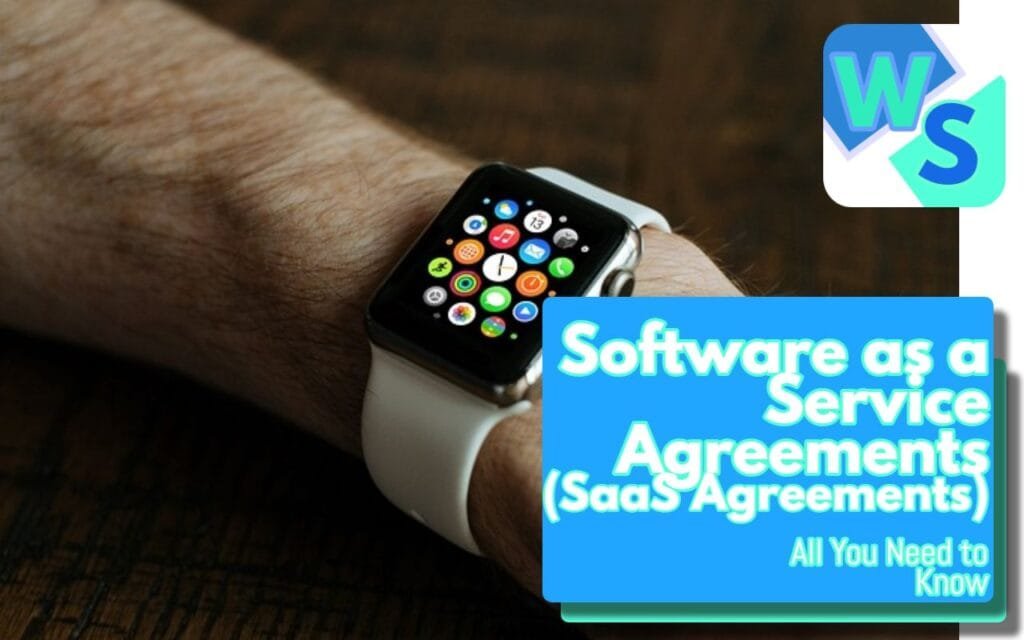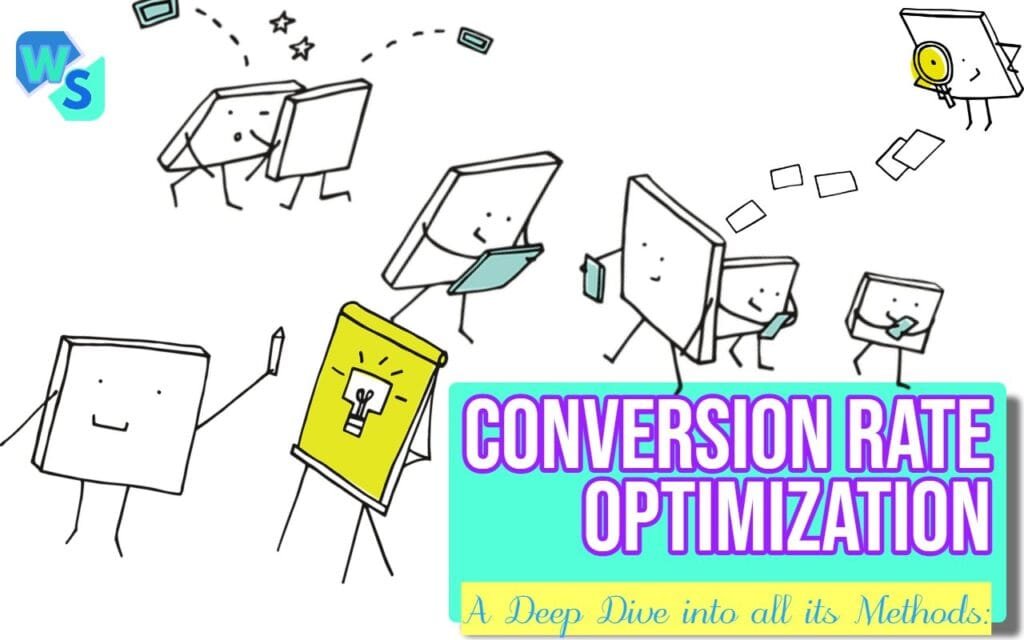Overview of Manufacturing Marketing
Importance of Marketing Strategies
In the manufacturing industry, the significance of well-developed marketing strategies cannot be overstated. Unlike B2C marketing, B2B marketing, particularly in manufacturing, involves longer sales cycles and more intricate processes. Effective marketing strategies are essential for establishing brand presence, engaging with potential clients, and ultimately driving sales.
Manufacturing marketing focuses on understanding the target audience, their needs, and the factors that influence purchasing decisions. It involves careful consideration of the purchase processes and the various stakeholders involved in the decision-making process (BigCommerce).
Key Drivers of Effective Manufacturing Marketing:
Content Marketing: Effective content marketing can significantly impact manufacturers by aiding in SEO, building brand trust, educating target audiences, and supporting the sales process by pushing potential customers down the funnel. Content such as whitepapers, videos, case studies, blogs, infographics, and slide presentations play crucial roles in establishing credibility and engaging with clients in a B2B context (BigCommerce). For more on this, visit our article on manufacturing content marketing.
Email Marketing: In the extended sales cycle of B2B environments, email marketing is vital for capturing interested leads and maintaining top-of-mind awareness with potential clients. This approach supports marketing automation and nurturing prospects over time through a series of targeted messages that guide them through the awareness, consideration, and decision-making stages (BigCommerce). Learn further on our page about manufacturing marketing automation.
Thought Leadership: Establishing thought leadership positions manufacturers as experts in their field, which enhances customer trust. Generating authority through case studies, white papers, blogs, and sharing valuable content is key to building brand reputation and attracting potential clients (BigCommerce).
Digital Transformation: The shift from traditional sales-focused approaches to integrated marketing strategies is driven by the need to connect with both consumers and business customers through methods such as content marketing and paid online advertising. This transformation is rewriting how manufacturers interact with their audience, making marketing strategies more critical than ever. Explore more on digital marketing for manufacturers.
Numerical Data Representation
To illustrate the impact of marketing strategies, here’s a table that displays the effectiveness of different B2B marketing strategies:
| Marketing Strategy | Effectiveness (%) |
|---|---|
| Content Marketing | 85 |
| Email Marketing | 75 |
| Thought Leadership | 65 |
| Digital Transformation | 90 |
Manufacturing companies increasingly rely on these marketing strategies to maintain a competitive edge in the market. For more detailed tactics, visit our section on B2B manufacturing marketing tactics.
Implementing robust manufacturing marketing strategies is the cornerstone of unlocking success in today’s competitive landscape. Prioritizing content marketing, email campaigns, thought leadership, and digital transformations can lead to substantial growth and stronger client relationships.
Key Digital Marketing Tactics
In the realm of manufacturing marketing, digital strategies play an essential role in expanding the client base and enhancing brand positioning. Here, we explore three core tactics: content-based marketing, SEO strategies, and email campaigns.
Content-Based Marketing
Content marketing enables manufacturers to demonstrate expertise, attract potential customers, and drive sales by creating and distributing high-quality content. This can include blog posts, case studies, videos, whitepapers, infographics, and slide presentations. Effective content marketing significantly impacts manufacturers by aiding in SEO, building brand trust, educating target audiences, and supporting the sales process.
| Content Type | Benefits |
|---|---|
| Blog Posts | Improves SEO, enhances brand trust |
| Case Studies | Demonstrates expertise, supports sales |
| Videos | Engages audience, educates potential clients |
| Whitepapers | Establishes authority, generates leads |
For more insights on content marketing strategies, visit our section on manufacturing content marketing.
SEO Strategies
SEO (Search Engine Optimization) plays a crucial role in making manufacturing websites more visible to potential clients. By optimizing the website content with relevant keywords, manufacturers can increase their search engine rankings and attract more organic traffic. This involves:
- Keyword Research: Identifying relevant keywords such as “manufacturing marketing strategies” and incorporating them naturally into the website content.
- On-Page SEO: Optimizing meta tags, headers, URLs, and images.
- Quality Content: Creating useful, compelling content that engages the target audience.
For more detailed tactics, please refer to our article on seo for manufacturing industry.
Email Campaigns
Email campaigns are an effective tool for lead generation and nurturing in the manufacturing industry. By sending targeted, personalized emails, manufacturers can engage with potential and existing clients, pushing them further down the sales funnel. Email marketing can include:
- Newsletters: Regular updates about company news, industry trends, and new products.
- Personalized Offers: Customized deals and discounts based on customer behavior and preferences.
- Follow-Up Emails: Post-event or post-purchase follow-ups to maintain engagement.
| Campaign Type | Objective |
|---|---|
| Newsletters | Keep clients informed, build relationships |
| Personalized Offers | Increase conversions, upsell products |
| Follow-Up Emails | Maintain engagement, provide value |
For more strategies on email marketing automation, see our guide on manufacturing marketing automation.
By integrating these key digital marketing tactics, manufacturers can enhance their online presence, generate more leads, and establish themselves as industry leaders. For further techniques and strategies, don’t miss our comprehensive guide on digital marketing for manufacturers.
Trade Show Marketing
Trade shows are a significant component of manufacturing marketing strategies. They provide a unique opportunity for manufacturing companies to showcase their innovations, connect with potential clients, and solidify their presence in the industry.
Benefits of Trade Shows
Trade shows offer multiple advantages, especially for manufacturers:
- Exposure: Trade shows provide an excellent platform for companies to display their latest products and technologies. According to Protocol 80, 80% of trade show attendees are actively looking for new products, emphasizing the importance of being prepared to capture potential customers.
- Networking: Attending these events allows companies to establish relationships with potential clients, suppliers, and even competitors.
- Brand Awareness: Consistent participation in trade shows can make a company’s brand synonymous with innovation within the industry.
- Lead Generation: Direct interactions at trade shows can lead to valuable business opportunities.
Pre-Event Marketing
Effective pre-event marketing is crucial for maximizing the impact of your trade show presence:
- Email Campaigns:
- Begin strategically planning a series of email blasts 6-8 weeks before the event (Protocol 80).
- Use personalized emails to invite existing and potential clients to visit your booth.
- Social Media Engagement:
- Engage with trade show hashtags and event pages to create buzz around your presence.
- Share teasers of what attendees can expect at your booth on platforms like LinkedIn, Facebook, and Twitter.
- Website Updates:
- Post announcements on your company’s website about your participation in the trade show.
- Include call-to-actions encouraging visitors to schedule meetings during the event.
| Strategy | Timing | Actionable Steps |
|---|---|---|
| Email Campaigns | 6-8 weeks prior | Send personalized invitations |
| Social Media | 6-8 weeks prior | Engage with hashtags and teasers |
| Website Updates | 8 weeks prior | Announce participation and CTA |
Post-Event Follow-Up
Post-event follow-ups are essential to convert leads into long-term clients:
- Follow-Up with All Leads:
- Do not limit your follow-ups to only ‘hot’ leads. Protocol 80 suggests that every lead should be followed up with since trade show conversations can be overwhelming and attendees might lack interest or be too exhausted to engage during the event.
- Personalized Communication:
- Send thank-you emails and personalized messages to those who visited your booth.
- Provide additional information on the products or services they showed interest in.
- Evaluation and ROI Calculation:
- Deduct total trade show expenses from the gross profit attributed to sales generated because of the event to calculate ROI.
For more strategies to enhance your manufacturing marketing, explore our articles on digital marketing for manufacturers, manufacturing content marketing, and social media marketing for manufacturers.
Thought Leadership in Manufacturing
In the realm of manufacturing marketing strategies, thought leadership plays a vital role in establishing credibility, engaging potential clients, and differentiating from competitors. By becoming a recognized authority within the manufacturing industry, companies can attract more business and foster customer loyalty.
Establishing Industry Expertise
To position themselves as industry experts, manufacturing companies must consistently provide valuable insights and knowledge to their audience. This can be achieved through various avenues:
- Publishing Research Papers: Sharing original research and findings helps establish the company as a leader in innovation and expertise.
- Presenting at Industry Conferences: Speaking at conferences allows companies to demonstrate their knowledge and connect with key industry players.
- Contributing Articles to Industry Publications: Writing articles for well-regarded publications helps reach a wider audience and strengthens the company’s reputation (RiseFuel).
Knowledge Sharing Strategies
To effectively share knowledge and insights, companies in the manufacturing sector can employ several strategies:
- Webinars and Online Workshops: Hosting educational webinars provides a platform to share expertise directly with a targeted audience.
- White Papers and E-books: Creating in-depth white papers and e-books can help explain complex topics and offer solutions to industry challenges.
- Blog Posts and Case Studies: Regularly updated blogs and detailed case studies can highlight the company’s experience and success in solving customer problems (BigCommerce).
| Strategy | Benefits |
|---|---|
| Publishing Research Papers | Establishes expertise and credibility |
| Presenting at Conferences | Enhances visibility and industry connections |
| Contributing Articles | Expands reach and reinforces thought leadership |
| Webinars and Workshops | Direct engagement with a targeted audience |
| White Papers and E-books | Explains complex topics and solutions |
| Blog Posts and Case Studies | Highlights experience and success stories |
By employing these thought leadership strategies, manufacturing companies can leverage their expertise to attract and retain clients. For more insights on advanced marketing tactics, explore our resources on manufacturing content marketing and digital marketing for manufacturers.
Account-Based Marketing (ABM)
Account-Based Marketing (ABM) has become a cornerstone of effective manufacturing marketing strategies. This approach allows companies to target specific accounts with tailored campaigns, aligning closely with the unique needs and challenges of each target company.
Customized Marketing Campaigns
Customized marketing campaigns are at the heart of ABM. These campaigns involve creating highly personalized content and offers that demonstrate a deep understanding of the target company’s specific needs. A study found that Volkswagen increased its budget for digital marketing campaigns by 50%. This investment highlights the importance of digital and custom-focused strategies in modern manufacturing marketing.
To create effective customized campaigns, manufacturers should:
- Develop Accurate Buyer Personas: Detailed buyer personas help identify key decision-makers and influencers within target companies. For instance, different personas could be developed for industries such as pharmaceutical, automotive, and electronics.
- Tailor Content to Specific Needs: Content should be highly relevant and provide solutions to the unique problems faced by the target company. This could include case studies, white papers, and personalized video messages.
- Use Marketing Automation: Leveraging tools like HubSpot can help in automating and personalizing email campaigns, thus nurturing leads more effectively (Windmill Strategy).
Example of a Customized Campaign
| Campaign Element | Description |
|---|---|
| Buyer Persona | Automotive Industry Decision-Maker |
| Personalized Content | Case study on reducing production costs |
| Follow-up Action | Automated thank you email with additional resources |
Marketing automation tools can streamline this process, ensuring consistent follow-up and engagement.
Targeting Specific Accounts
Targeting specific accounts is essential for ABM. This means focusing your marketing efforts on a few high-value accounts rather than broad outreach. This strategy is particularly effective in B2B markets where the sales cycle is long, and each account represents significant revenue potential.
Here’s how to implement targeted marketing for specific accounts:
- Identify High-Value Accounts: Use data analytics to identify companies that would benefit the most from your products or services. Consider factors like company size, industry, and current challenges.
- Create Customized Proposals: Tailor your proposals to address the specific needs and pain points of each account. Customized proposals demonstrate your deep understanding of the target company’s needs (RiseFuel).
- Follow-Up Strategically: After an initial pitch or trade show interaction, follow up with automated thank you emails and relevant information to keep the conversation going (Simple Machines Marketing).
Targeting High-Value Accounts
| Account | Industry | Custom Proposal Focus |
|---|---|---|
| Company A | Pharmaceutical | Streamlined supply chain solutions |
| Company B | Automotive | Cost reduction technologies |
| Company C | Electronics | High-precision manufacturing |
This targeted approach ensures that marketing resources are used efficiently and effectively, yielding higher conversion rates.
The power of ABM lies in its ability to create meaningful connections with high-value accounts through customized marketing campaigns and targeted approaches. By focusing on the needs of specific accounts, manufacturers can increase engagement, build stronger relationships, and ultimately drive business growth.
Social Media Marketing for Manufacturers
Social media marketing is an essential component of effective manufacturing marketing strategies. It provides manufacturers with the opportunity to connect with potential and existing customers, build relationships, and boost brand awareness.
Platform Selection
Selecting the right social media platform is crucial for reaching your target audience in the manufacturing sector. Each platform offers different features and caters to various audiences, making it important to choose wisely. The following table summarizes key platforms and their potential benefits:
| Platform | Primary Uses | Audience Insights |
|---|---|---|
| B2B networking, industry news | Professionals, decision-makers | |
| Industry updates, customer support | Broad audience, real-time interaction | |
| Brand community engagement, ad campaigns | General audience, varied age groups | |
| YouTube | Product demonstrations, tutorials | Visual learners, wide demographics |
| Visual storytelling, brand personality | Younger demographics, emphasis on visuals |
Manufacturers often find LinkedIn to be particularly effective due to its professional focus and capabilities for B2B interactions (Katana Manufacturing Guide). Many manufacturing companies have also increased their digital marketing budgets, prioritizing platforms that provide robust networking and showcasing opportunities (AI-bees).
Content Creation Strategies
Creating engaging and relevant content is fundamental to a successful social media strategy. Here are some strategies manufacturers can use to effectively create content that resonates with their audience:
Educational Content: Share industry insights, how-to guides, and informative articles to establish your company as a thought leader. This approach helps to attract and engage potential clients while reinforcing your expertise (BigCommerce).
Product Demonstrations: Utilize videos and live streams to showcase product features, benefits, and applications. YouTube and Facebook Live are excellent platforms for these types of content.
Customer Testimonials and Case Studies: Highlight success stories and feedback from satisfied clients. These build credibility and provide social proof of your products’ effectiveness.
Behind-the-Scenes Content: Offer a glimpse into your manufacturing processes, company culture, and team. This humanizes your brand and fosters a stronger connection with your audience.
Interactive Content: Engage followers with polls, Q&A sessions, and contests. Interaction boosts engagement and increases the visibility of your posts.
By combining these content creation strategies with the right platform selection, manufacturers can significantly enhance their social media presence and support overall marketing goals. For more in-depth insights, explore our article on b2b manufacturing marketing tactics and manufacturing content marketing.
Use these techniques to stand out in the competitive landscape of the manufacturing industry and leverage social media to its fullest potential. Engaging content paired with the right platform ensures your message reaches a broad, yet targeted, audience, thereby maximizing the impact of your marketing efforts.
Evolution of Manufacturing Marketing
Understanding the evolution of manufacturing marketing is paramount for industry professionals striving to remain competitive. Emphasizing this transformation highlights the shift from sales-centric approaches to versatile marketing strategies that cater to modern consumer behaviors.
Shift from Sales to Marketing
Historically, manufacturing companies focused heavily on sales rather than marketing. The primary responsibility for lead generation rested with the sales department. However, the competitive landscape has driven a significant shift. Manufacturers can no longer ignore the impact of effective marketing strategies.
The shift is evident in several key areas:
Lead Generation: Modern manufacturing marketing strategies involve content marketing, email campaigns, and pay-per-click (PPC) advertising. These tactics support lead generation by targeting potential customers more precisely than traditional sales methods.
Longer Sales Cycle and Complex Processes: Manufacturing marketing is primarily focused on B2B interactions, which typically involve longer sales cycles and complex decision-making processes. Understanding the target audience, customer requirements, and purchase drivers is essential (Katana Manufacturing Guide).
Adapting to New Consumer Interactions
Manufacturers must adapt to new ways of engaging with consumers and B2B customers. Effective content marketing can significantly impact this process by aiding in search engine optimization (SEO), building brand trust, and educating target audiences.
Content Marketing: Valuable content such as whitepapers, videos, case studies, blogs, and infographics plays a crucial role in manufacturing marketing. These materials help push potential customers through the sales funnel and establish credibility. For more on this topic, visit our article on manufacturing content marketing.
Digital Marketing and SEO: Digital marketing tactics, including SEO and social media strategies, allow manufacturers to reach a broader audience. By optimizing their online presence, manufacturers can attract potential clients searching for relevant products or services. Learn more about digital marketing for manufacturers.
Thought Leadership: Establishing industry expertise through knowledge sharing is vital. Manufacturers can position themselves as thought leaders by creating authoritative content, which enhances customer trust and engagement. For strategies on becoming a thought leader, see our article on industrial marketing for manufacturers.
| Strategy | Benefits |
|---|---|
| Content Marketing | Enhances SEO, builds trust, educates audiences |
| Digital Marketing & SEO | Broadens reach, attracts targeted leads |
| Thought Leadership | Establishes authority, increases customer trust |
Understanding and implementing these evolving marketing strategies ensure that manufacturers can effectively connect with their audience. Utilizing a combination of content marketing, digital tactics, and thought leadership lays a robust foundation for success in the modern manufacturing landscape.
The Role of Email Marketing
Email marketing remains a vital component of manufacturing marketing strategies due to the typically longer sales cycles in the industry. It allows companies to effectively capture interested leads and keep potential clients engaged.
Lead Generation and Nurturing
For manufacturing companies, lead generation through email marketing involves capturing contact information from potential clients via sign-up forms, downloadable content, or industry events. Once leads are captured, nurturing them becomes essential to keep them engaged over a prolonged period. This is particularly important in the B2B space where decision-making processes can be lengthy.
Key Lead Nurturing Techniques:
- Email Drip Campaigns: Automated email sequences that deliver content based on the recipient’s actions or interests. This helps in consistently guiding leads through the awareness, consideration, and decision-making stages.
- Educational Content: Providing valuable insights through whitepapers, case studies, and industry reports can help maintain interest and build trust.
- Personalization: Tailored content that addresses specific pain points, enhancing engagement and conversion rates.
Marketing Automation Strategies
Marketing automation in email campaigns can significantly streamline the lead nurturing process. Automated workflows enable manufacturing companies to send timely and relevant messages without manual intervention. This ensures constant engagement with potential clients while freeing up human resources for other tasks.
Examples of Effective Automation Strategies:
| Strategy | Description | Benefits |
|---|---|---|
| Trigger-based Emails | Sending emails based on specific actions (e.g., downloads, site visits) | Personalized engagement, high relevance |
| Behavioral Segmentation | Segmenting contacts based on their interactions and behaviors | Targeted messaging, improved open rates |
| Lifecycle Campaigns | Customizing emails based on the lead’s stage in the buyer’s journey | Efficient nurturing, better conversion rates |
Marketing automation can further enhance the efficiency and effectiveness of email marketing for manufacturers. For more insights on automation tools, visit our page on manufacturing marketing automation.
Incorporating these email marketing strategies can help manufacturing companies build a consistent pipeline of engaged leads, ultimately driving more conversions and fostering long-term client relationships. For more comprehensive tactics, explore our section on digital marketing for manufacturers.




















